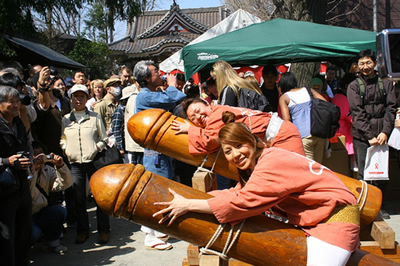Tournament of Bookshit Final Matchup: ‘everybody has a story’ vs Sewage Treatment Technologies

[matchup #63 in Tournament of Bookshit]
If I just reword the debate, you will see there is no question here:
The story of the homeless man who recently got his face eaten off vs. Humanure
As you can see, even the most banal, average human story easily trumps a sewage treatment technology. But as language is a game in which I play really good, I will expand my argument with a memory thus bludgeoning you with my sweet opinion. Picture a small child, gazing up at her grandmother, her eyes wide with anticipation and respect for the matriarch, her attention clinging to her grandmother’s every word. Now picture a child listening to her grandma go on and on about growing up next to a PF Chang’s as grandma sat on the toilet and every once in a while demanded 8 squares of 2-ply—I could have listened to those stories for hours. The smell of crab wontons and northern style spare ribs still issuing from her soft, old-ass lady skin. Listening to those stories of a shared past, I felt a great sense of familial warmth like a curly hair in massage oil. It wasn’t just the historical facts of my grandmother’s stories that kept my attention for hours—that as a baby she escaped some horrible genocidal type thing in Europe or the mid-west or the time she rode on this big, huge boat that crashed into a glacier and sunk or actually, that was a blimp, I think—what kept me at attention was the amazing power of language to build vivid, infinite worlds in my mind, that and her fists were the size of hams. She wasn’t the most eloquent of story tellers, in fact she suffered from swollen tongue so often that most of the time it sounded like she was rolling a golf ball around in her mouth, but I could feel the urgency and emotion in her every word. Her life was the accumulation of her stories, and this defines our human condition. In comparison, sewage, treated or otherwise, ain’t shit. Septic tanks? Fine bubble diffusers? Froth flotation? Expanded granular sludge bed digestion? I’ll take my grandmother’s story about meeting my grandfather during the Great Sensation or watching the first Jewish president get knifed on cable any day.
ToBS Final Four: Calling anything you write a manuscript vs Sewage Treatment Technologies

[matchup #62 in Tournament of Bookshit]
Calling anything you write a manuscript, known as the Billy Collins approach or the Ron Silliman method in contemporary poetry circles, is not only popular with poets (David Foster Wallace immediately springs to mind, too), but nobody does it better than a poet. No one else has the narcissistic tendencies, nor the free time. But these very same tendencies led to one of the most beloved pieces of literature of all time: The Bible. Can you think of another book with words and sentences arranged less arbitrarily? Can you think of another book that’s inspired as much killing in its name? Yet it was conceived during a flight of whimsy and written on the back of a cloud as a half joke.
ToBS R4: Celeb fiction vs. calling anything you write a manuscript

Emma Roberts pees in a jar and massages my imagination. A friend encourages.
[matchup #60 in Tournament of Bookshit]
“Funny how new facts pop up and make you doubt that there’s any goodness in life.”1 An ewer of wisdom. “The first baby of the new year, her arrival had been announced in all the papers as if she were heir to a throne or a fortune instead of the daughter of a sometime fisherman and fulltime gambler, and the best waitress at the Garden Cove Pancake House on U.S. 1.”2 There are times when your connection to humanity is self-evident, joyously overwhelming. “She had to take a shower, like, immediately.”3 Who doesn’t know the bright snap of day, and welcome it? “Most people think about age and experience in terms of years, but it’s really only moments that define us.”4 Could it be any sweeter? “The club will not run out of tequila until I get my hair right. So shut the fuck up.”5 Forms like dew, inevitable as the sun. “One of the things I hate most about this book is that it is all about me.”6 Alas, we are all selecting principles. “Surely this babe would be impressed by his résumé.”7 Alas.
4 Glenn Beck, The Overton Window
5 Nicole “Snooki” Polizzi, A Shore Thing
7 Bill O’Reilly, Those Who Trespass
– – – READ MORE >
ToBS R4: Alcoholism vs. Calling yourself the “Editor in Chief” of an online journal

[matchup #59 in Tournament of Bookshit]
This being my first venture into sports writing, I think what I’ll do is recap alcoholism’s inevitable rise to power before tonight’s “game,” then we can all pop some High Lifes and pull them hot wings out of the freezer.
Alcoholism was on a tear until HTML decided to drop Tournament of Bookshits and review books. Shame, because there were some real gems in there. Take these gems from the Giancarlo Ditrapano-moderated Facebook status updates re: present MS word count vs. Alcoholism:
If you write 5,000 words, chances are that 4,950 of them are shit
I miss workshops already. READ MORE >
ToBS R4: ‘everybody has a story’ vs. Daily facebook updates of what you ate

[matchup #58 in Tournament of Bookshit]
Well, I really wanted this one to go the other way. I know I’m meant to be impartial, but really: everybody has a story? Um, no they don’t. (See, you can’t even talk about it without getting into the whole pronoun thing.) Everybody has a skull, sure, and a pet fish, but a story? Most people have neither beginning, middle, nor end. They just sort of float out there waiting to get stabbed.
Whereas, daily Facebook updates of what you ate? Yum! More please. You had kale? You pig, you did not! Bonus points if you braised something, because I don’t know what that means. But it sounds delish. READ MORE >
The Alfinian Way: Nuclear War and the Thoughts of an Alien
With mounting international debate about Iran’s nuclear weapons capability and potential military action against them, I am reminded of an episode of the TV show Alf. Aired on October 13, 1986, “Pennsylvania 6-5000,” the series’ fourth episode, follows the furry, wisecracking alien as he tries to convince the President of the United States to abandon the country’s nuclear weapons program in order to save planet Earth from complete annihilation.
In the opening scene, Alf sits in the living room of the suburban house where he lives, talking to a radio show host on the phone. “I’ve got the solution to this nuclear bomb thing,” Alf says. “Get rid of ’em! They’re dangerous.” The studio audience laughs, but the message is clear: Alf’s right. Nuclear weapons are potentially self-destructive. The episode’s other lesson is equally apparent: the issue isn’t that simple.
ToBS R4: Sewage Treatment Technologies vs. middle age white male self published sci fi novel pt 1 of 4

Salt, c. 2007
[matchup #57 in Tournament of Bookshit]
Waste, do you know the word. Often it comes at night when I’m combing my lines in the dark. When I’m mouthing the name of a woman, or fucking myself, or wondering why I carry on being American. Waste means whatever waste wants. In the middle of my life I searched for myself in the engine. I’m not dead links and waste and zero results, I told myself. I wrestle the ancients and yell their names when I’m blackout. I unleash myself on myself and fuck the crow from my book. But waste means here comes the shepherd’s crook. Ask me anything I’m the bellwether nobody tags. Waste and my instant telegrams of perennials and teacups and my shoes in the cities I love they will vanish. I’ve failed to convince myself to subscribe to myself. I stand before the wall on which nothing’s written. Waste means I’m following. I came here to waste in the box but everyone called it life. Waste finds me new addresses, new names every day. A red name, a green name, then orange. Like the colors that hang from the wires that tell me to drive. Waste means traffic. Waste means more invites. Waste means I interview Salt, my friend in his twenty-sixth year because his father manages waste to make money. I remember one day a dozen years ago he came home smelling like shit, Salt writes me. Are you like him do you watch the river of waste to make money. Waste the river of fishbones and scumbags and hair and bloodrags it’s blackbread with the crust come alive. Waste I’m disabling my family filter. Shit definitely one of the top three smells. READ MORE >
ToBS R3: Facebook-based political ‘activism’ vs. calling anything you write a manuscript

[matchup #56 in Tournament of Bookshit]
Real talk. Facebook “like”ing this page would probably do more than releasing an anthology of contemporary poetry about it. And claiming that your writing is experimental and divorced from politics doesn’t just mean that you write white identity poetry. It is also an acknowledgement of poetry’s inability to affect change in contemporary America.
Additionally, The New Yorker published a long-form expository essay about Facebook-based political activism. The New Yorker has never published a long-form expository essay about poetry.
At first, it seemed so clear. The facts led this judge solidly in one direction. But then a close friend of mine brought to light a new and intriguing piece of research. It’s called the Penis Defense. In this six-page manuscript, the author lays out a whole new theory behind calling anything you write a manuscript. READ MORE >
“ultimately beautiful”: an Interview with Steve Roggenbuck

I saw Steve Roggenbuck read at Stephen Dierks house during AWP week he stood on top of something, I can’t remember what, he is small, his physical presence not very dominating. But he stood up there and took control of the audience, yelling 666 and Justin Bieber and all kinds of weird shit. The audience stood there, completely enthralled. People were yelling and screaming during the whole reading, people were extremely excited to be at a poetry reading.
According to AD Jameson Steve Roggenbuck would be considered a New Sincerist and the question has been asked, if writing in such a sincere manner can be prolonged over a long career. I think it can, because sincerity is transitory. The writing is Buddhist in that way, an acceptance of endless change, the impermanence. We can be convinced of truth at times/later/that truth becomes false/we forget those beliefs. For three years we read one type of books/then move onto another/then move onto another. We move from the country/to the city/we fall in love/we fall out of love/do it again/we don’t have sex for two years/we meet a sado maschocist and get choked/we have kids/watch them grow/we wash diarrhea off her our naked father because he is sick and dying/we become concerned about insurances/it goes/on on on. Roggenbuck’s first book I am like October when I’m Dead were short little poems with a tibit of sentimentality. Helvetica was this blitzkrieg of weird ass flarf lines. And Crunk Juice was an intensely designed chapbook with longer poems, using more poetic devices with a higher emphasis on sound. These changes, are not just the changes of a writer, but Steve Roggenbuck changing before us, we are getting older with him. He asks us to join him, on his journey through life, seems a little like reality television, but who wouldn’t want a reality television full of really emotional well-read people.
NC: I think what you don’t do is one of the reasons you have made such a ‘big splash.’ Like you didn’t go down the depression road when writing, which I think invited a lot more people into the alt-lit scene. Because not everyone is suffering from depression and existential crisis all the time. Did you consciously reject the depression route or just find it not your style? READ MORE >

